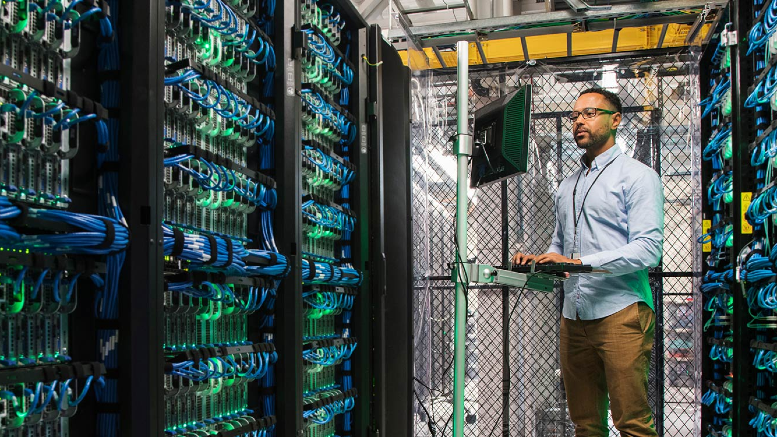How COVID-19 Impacted In-Branch Banking Operations by Accelerating Digital Transformation
January 19, 2021 / Andrew Whelan
The COVID-19 pandemic is one of the most disruptive events in living memory, both for individuals and the institutions that serve them. Ongoing lockdown orders and social distancing guidelines have stymied in-person operations across industry lines, with the retail and banking sectors facing entirely new commercial landscapes. To remain competitive, companies in the financial services industry are looking for new ways to facilitate banking transactions through digital channels, while also supporting employees who may be working remotely for the first time.
Keeping pace with shifting revenue targets and customer expectations has always been a challenge, but the current crisis is unique. For the first time, banks are unable to deliver in-person services and support to anyone walking through the front door. Although larger institutions have been able to comply with social distancing rules, while smaller traditional banks have struggled to adapt to the new normal. This disparity raises a very important question: How has the coronavirus epidemic impacted in-branch operations, and what can midsize banks do to set themselves up for long-term success?
COVID-19 wasn’t the initial disruptor. The digital transformation of the financial sector was already well underway, trending toward the digitisation of money, online money management, remote and mobile banking, and contactless payments. However, COVID did act as a catalyst, pushing change much more quickly than might otherwise have occurred and creating the banking world of the future.
Fintech-driven Neobanks, which have been attempting to gain a foothold in the tightly regulated world of banking, have come into their own during the pandemic. They are uniquely placed to speed up banking transactions and meet the expectations and needs of banking customers. As consumers learn and embrace different, more efficient processes, is there room left for the physical bank branch and manager?
In a post-COVID world, those who insist on in-person service are dwindling, and financial institutions must decide whether they will join the culture of change or remain stubbornly stuck in the past.
High-impact areas
The ongoing health crisis has had far-reaching consequences for in-person banking operations and the profitability of financial institutions. According to research from KPMG International, the increased credit risk of corporate and retail clients, along with a contraction in economic activity, has led to a rise in loan loss provisions. This defensive posture was born out of pure necessity, and it’s unclear whether additional risk management and reclassification efforts will be needed in the future.

Digital solutions are allowing banks to roll out new service channels, support remote workers and enhance the customer experience.
Along with maintaining profitability and rolling out provisional risk management processes, banks are also facing a customer experience crisis. Branch-centric institutions have been forced to encourage the use of digital banking applications and online services, which may not have been a strategic priority in the past. Organisations that were unprepared for this shift likely didn’t have time to build streamlined, easy-to-understand service pathways and customer-facing applications. Failing to deliver on consumer expectations can lead to lasting financial and reputational damages, which may drive away new prospects.
According to KPMG, the following three areas are among those most impacted by the COVID-19 pandemic:
Customer relationships and commercial models
The bank-customer relationship has always played a role in the profitability of financial institutions. Adapting to the needs and preferences of existing and potential customers ensures organisations can offer the highest possible quality of service and change with the times.
Mobile banking is just one example — according to research from Business Insider, 89% of polled consumers say they use mobile banking applications. As these service channels have grown in popularity, they’ve become more of a rule than an exception, and banks are following suit. The majority of digital platform implementations are user experience (UX) focused, such as mobile check deposit using your smartphone’s camera.
In the current climate, more families and individuals are taking a cautious approach to credit, debt and the purchase of major assets, according to research from Deloitte. This has not only led to a reduction in fee-based income for institutions, it’s also impacted consumers’ willingness to save. As a result, Deloitte expects banks will shift their messaging to “prioritise cash-flow advice” over long-term saving and investing.
Customer privacy and data security
Hastily implemented work from home policies fast-tracked digital transformation, but heightened security risks associated with digital experiences. Bank employees suddenly found themselves working from home and accessing client personal information and financial data from various remote locations, leading to security risks related to cloud access and usage away from physical bank premises.
Banking is arguably the most regulated industry with healthcare running a close second. The accelerated move to the cloud was brought about by the greater need for accessibility to data due to COVID. However, it heavily impacted data security and customer privacy in a regulatory landscape not prepared for the massive shift, and requirements and regulations are slow to catch up.
Operational resilience and business continuity management
Along with shifting consumer behaviors, banks have also had to adapt to the work requirements of employees who have been displaced from their in-branch roles. This is where technological innovation comes into play. While most financial institutions had started their digital transformation journeys, many were unprepared for the rapid closure of physical branches. Though it’s true that major banks moved swiftly to redeploy workers in order to service COVID-related customer queries remotely, this transition has been difficult for smaller institutions.
Rather than seeing the current crisis as a net negative, KPMG cautions banks to treat the disruption as “positive discontinuity” that will encourage digitisation and improve their ability to deliver exceptional customer experiences. Of course, making use of artificial intelligence, machine learning and other advanced technologies may require upfront investment in new infrastructure.
If your organisation is struggling to adapt to the current banking ecosystem, the experts at Unisys are here to help. We’ll work with you to assess your IT needs, establish clear service management processes and future-proof your banking operations.
Explore our banking industry resources to learn more.




















